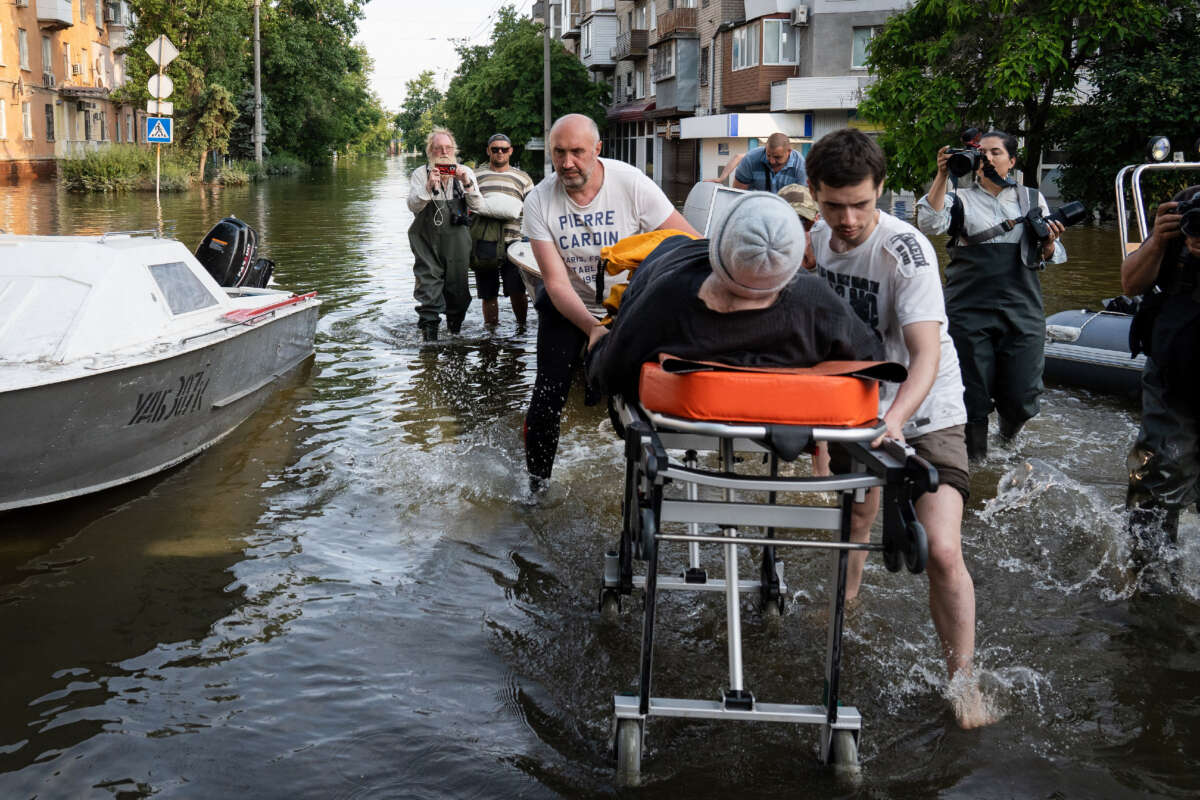Support justice-driven, accurate and transparent news — make a quick donation to Truthout today!
The United Nations on Sunday accused the Russian government of denying aid workers access to Moscow-controlled areas of southern Ukraine that were impacted by the devastating collapse of the Kakhovka dam earlier this month.
Denise Brown, the U.N. humanitarian coordinator for Ukraine, said in a statement that Russia has “so far declined our request to access the areas under its temporary military control” and implored Moscow officials to “act in accordance with their obligations under international humanitarian law.”
“Aid cannot be denied to people who need it,” said Brown. “The U.N. will continue to do all it can to reach all people — including those suffering as a result of the recent dam destruction — who urgently need life-saving assistance, no matter where they are.”
Dmitry Peskov, a spokesperson for the Kremlin, said it would be unsafe to allow aid workers to access the area due to ongoing fighting.
“There has been constant shelling, constant provocations, civilian facilities, and the civilian population have come under fire, people have died, so it’s really difficult to ensure their security,” Peskov told reporters Monday.
The dam’s collapse sparked a humanitarian and ecological disaster, forcing thousands to flee their homes, intensifying concerns about the structural integrity of a major nuclear plant, and potentially causing long-term damage to the area’s drinking water and agriculture — a crisis with global implications.
More than 50 people have been confirmed dead as a result of the dam’s collapse.
Ukraine and Russia have blamed each other for the disaster, while some have suggested the fall of the dam — which was under Russian control at the time of the collapse — was a result of damage accumulated from months of war.
Citing two U.S. engineers, an explosives expert, and a Ukrainian engineer with “extensive experience with the dam’s operations,” The New York Times reported Friday that “given the satellite and seismic detections of explosions in the area, by far the most likely cause of the collapse was an explosive charge placed in the maintenance passageway, or gallery, that runs through the concrete heart of the structure.”
The Associated Press separately reported Sunday that “images taken from above the Kakhovka dam… appear to show an explosive-laden car atop the structure, and two officials said Russian troops were stationed in a crucial area inside the dam where the Ukrainians say the explosion that destroyed it was centered.”
Moscow says Ukraine sabotaged the dam with “mass artillery attacks” or missile strikes.
Whatever the cause, the consequences have been profound and will likely be long-lasting.
“I worry a lot about the effect on global food prices and, as much as anything, on global food availability,” Martin Griffiths, the U.N.’s under-secretary-general for humanitarian affairs and emergency relief coordinator, told PBS late last week.
“We will see the extent of that damage as the waters recede,” Griffiths added. “It is a catastrophe for the world.”
Media that fights fascism
Truthout is funded almost entirely by readers — that’s why we can speak truth to power and cut against the mainstream narrative. But independent journalists at Truthout face mounting political repression under Trump.
We rely on your support to survive McCarthyist censorship. Please make a tax-deductible one-time or monthly donation.
